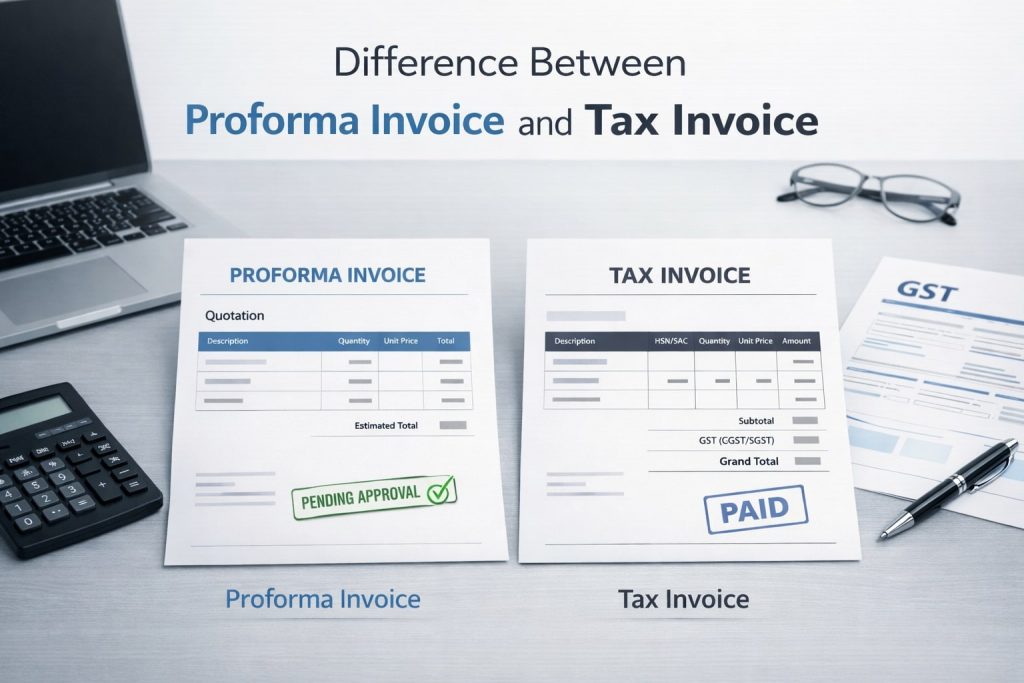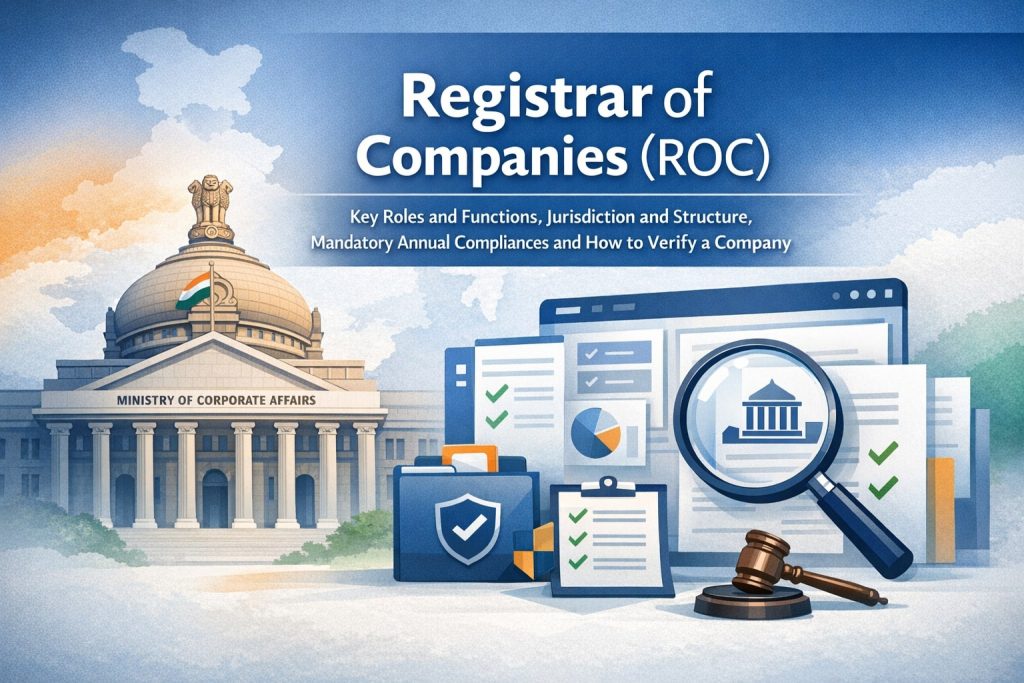Salary Certificate: Meaning, Purpose and Use, Format, Key Components, and Salary Certificate vs Salary Slip

A salary certificate is one of the most essential HR-issued documents used across financial, administrative, and verification processes. It serves as an officially authenticated statement from the employer confirming an employee’s identity, employment status, and salary details. For businesses and HR professionals, understanding the structure, purpose, and correct issuance of a salary certificate is critical, as it directly contributes to organizational credibility, employee support, and compliance with documentation standards. This guide provides a comprehensive overview of salary certificates, their key components, their uses across various institutions, and how they differ from salary slips, enabling HR teams to issue them accurately and confidently.
Meaning of Salary Certificate
A salary certificate is an official document issued by an employer to formally confirm an employee’s identity, designation, employment status, and the salary they receive from the organization. Unlike a simple payroll slip, it serves as an authenticated declaration issued only by the employer’s authorized signatory, typically someone from HR, Finance, or another designated authority responsible for certifying organizational records.
From a compliance standpoint, a salary certificate carries legal and verification value. Since it is used for financial, legal, and administrative evaluations, it is considered valid only when printed on the company’s official letterhead and signed, stamped, and endorsed by the authorized representative.
Third-party institutions such as banks, embassies, government bodies, or verification agencies rely on the employer’s authority and signature when reviewing a salary certificate.
In essence, a salary certificate serves as a formal verification document that provides:
- Proof of employment
- Proof of salary details
- Evidence of the employee’s financial reliability and stability
It is issued upon request, typically for purposes such as loan applications, visa processing, tenancy or housing verification, or other financial documentation needs. Because it represents an official employer statement, it carries a higher level of authenticity compared to informal income documents.
Purpose of a Salary Certificate
The primary purpose of a salary certificate is to serve as an officially authenticated HR document that verifies an employee’s employment status and salary details for both internal and external checks. Unlike general income statements or informal salary declarations, a salary certificate carries the authority of the employer, making it a reliable and trusted verification document.
1. Primary Purpose: Employment & Income Verification
The core function of a salary certificate is to formally confirm:
- The employee is currently working with the organization
- Their position, designation, and employment tenure
- Their gross salary, basic salary, allowances, and other earning components
This helps third parties confidently validate an employee’s job role and financial standing.
2. Secondary Purposes (Why Employees Request It)
While employment and income verification remain the central purpose, HR professionals frequently issue salary certificates for broader needs such as:
a) Financial & banking requirements
- Personal loans
- Home loans
- Credit card approvals
- EMI financing
Banks rely on the employer’s signed certification to assess repayment capacity.
b) Visa and immigration processes
Embassies require proof of financial stability and employment to evaluate visa eligibility.
c) Government and administrative tasks
In many procedures—subsidies, tenders, court submissions, or official applications—salary certificates act as an accepted income proof.
d) Rental or private verifications
Landlords and private institutions use salary certificates to ensure the applicant has stable income.
3. Why It Matters for HR & Businesses
For HR professionals, issuing a salary certificate is not just a routine administrative task; it is an act of organizational authentication.
Proper issuance:
- Upholds the company’s credibility
- Ensures accurate employee verification
- Reduces the risk of fraudulent claims
- Maintains compliance with internal documentation policies
Because external bodies rely heavily on the employer’s statement, HR must ensure that every certificate is accurate, updated, and authorized.
4. Why Third Parties Depend on It
Banks, embassies, government offices, and verification agencies trust a salary certificate because it carries:
- Employer signature
- Company seal
- Official letterhead
- Authenticated salary details
These elements make it a highly reliable document for assessing a person’s financial stability and employment legitimacy.
Uses of a Salary Certificate
A salary certificate plays a crucial role in multiple financial, legal, administrative, and personal transactions. Because it is an officially authenticated HR document, third parties rely on it to assess an individual’s employment stability and earning capacity. Below are the major categories of uses, with Financial Uses given primary emphasis.
1. Financial Uses (Primary Category)
Most salary certificates are issued for financial assessments where institutions require reliable proof of income and employment stability. HR departments frequently provide salary certificates for:
a) Loan Approvals
Banks and NBFCs request salary certificates to evaluate an applicant’s ability to repay:
- Personal loans
- Home loans
- Vehicle loans
- Business loans (when salaried individuals apply)
The certificate helps lenders verify gross income, tenure, and stability—key factors in credit risk analysis.
b) Credit Card Applications
Before issuing a credit card, banks need to assess the applicant’s earning consistency. A salary certificate acts as a trusted source to determine credit limits.
c) EMI Financing & Consumer Loans
Retailers, e-commerce platforms, and financing companies use salary certificates to assess eligibility for EMI-based purchases (mobiles, electronics, furniture, etc.).
d) Mortgage & Rental Deposits
Financial institutions require income proof before approving deposits or mortgage-related documentation.
Because the salary certificate carries the employer’s authorization and seal, it is treated as a high-trust document for all financial evaluations.
2. Legal and Administrative Uses
Government agencies and administrative bodies often require salary certificates for:
- Verification in court cases
- Subsidy applications
- Government scheme eligibility
- Proof of income for official records
- Document submissions for tenders or compliance procedures
It is used as an official employer-backed declaration to establish a person’s financial standing in administrative matters.
3. International and Travel Uses
Salary certificates are important for:
a) Visa Applications
Embassies require a salary certificate to verify that the applicant:
- Has stable employment
- Can afford international travel
- Is financially responsible
This is especially relevant for tourist, work, student, and dependent visas.
b) Immigration & Background Verification
Immigration authorities or foreign employers may ask for a salary certificate during background checks to confirm employment history and income.
4. Private and Personal Verification Uses
Certain non-governmental and private situations also require salary certificates, such as:
a) House/Apartment Rentals
Landlords ask for salary certificates to ensure that the tenant can pay rent and maintain financial commitments.
b) School/College Admissions
Some educational institutions request salary certificates of parents or guardians for fee category verification.
c) Private Verification Agencies
During background verification, agencies may request a salary certificate if salary slip or offer letters are unavailable.
Why HR Must Understand These Uses
Because the salary certificate carries legal and financial weight, HR must ensure that:
- Information is accurate and up-to-date
- The certificate is issued only on official letterhead
- Proper signatures and seals are included
- No unauthorized personnel issue the document
Incorrect or loosely issued certificates may lead to financial risks, fraudulent use, or compliance issues for the organization.
Simple Salary Certificate Format (Template)
(You can teach this as a ready-to-use structure)
[Company Name]
[Company Address]
[Contact Number] | [Email] | [Website]
Company Letterhead
SALARY CERTIFICATE
Date: ____________________
This is to certify that [Employee Name], holding the position of [Designation], is employed with [Company Name] as a [Full-time/Part-time/Contract] employee since [Joining Date].
The employee’s current monthly salary structure is as follows:
Salary Component | Amount (₹) |
Basic Salary | _________ |
House Rent Allowance (HRA) | _________ |
Other Allowances | _________ |
Gross Monthly Salary | _______ |
Key Components of a Salary Certificate
A well-structured salary certificate must contain specific components that allow third parties—banks, embassies, government offices, and verification agencies—to validate an employee’s identity, employment status, and income accurately.
Below are the five standard HR components every salary certificate should include:
1. Employee Identity Details
These details ensure the certificate belongs to the correct employee and prevent misrepresentation.
Essential fields include:
- Employee Full Name
- Employee ID (if applicable)
- Department
- Contact Details (optional)
Purpose: Helps organizations or financial institutions confirm the exact individual making the request.
2. Employment Details
This section verifies the employee’s association with the organization.
It includes:
- Designation / Job Title
- Employment Type (Full-time / Part-time / Contract)
- Date of Joining
- Current Work Status (Active / On Notice Period / On Leave etc.) — optional but useful
- Reporting Location / Office Location (optional)
Purpose: Confirms the legitimacy of employment, job role, and tenure, which are crucial for financial and administrative evaluations.
3. Salary Structure
This is the core of the certificate and must be accurate.
A simple structure includes:
- Basic Salary
- HRA (House Rent Allowance)
- Other Allowances (e.g., Special Allowance, Conveyance, etc.)
- Gross Monthly Salary
- Net Monthly Salary (after deductions)
Why it matters:
Banks and external agencies depend on this section to understand the employee’s earning capacity and financial stability.
Purpose of Issuance
A short line specifying why the employee requested the certificate.
Common examples:
- “Issued for loan processing purpose”
- “Issued for visa application”
- “Issued for rental verification”
- “Issued upon employee request for official use”
Why it matters:
Helps third parties understand the intended use and prevents misuse of the document.
5. Authorization & Verification Block
A salary certificate is valid only when officially authenticated.
This block should include:
- Name of Authorized Signatory
- Designation (HR Manager / Admin Head / Finance Manager)
- Signature
- Company Seal
- Date of Issue
- Company Letterhead Requirement (implied but critical)
Why it matters:
This is the component that gives the document legal and verification value.
Without authorization, the certificate is not considered valid by banks or government bodies.
Recommended Reads for You
Salary Certificate vs Salary Slip
A salary certificate and a salary slip both relate to employee earnings but serve very different purposes. HR professionals must understand and communicate these differences clearly.
Difference Between Salary Certificate and Salary Slip
Feature | Salary Certificate | Salary Slip |
Meaning | An official document issued by HR or employer certifying an employee’s employment and salary details, usually upon request. | A monthly statement showing detailed salary components, deductions, and net pay issued every pay cycle. |
Issued By | Authorized HR/Employer/Signatory only, on request. | Payroll system automatically issues it every month. |
Frequency of Issue | Issued only when the employee requests it. | Issued every month as part of payroll. |
Purpose | Used for verification by banks, embassies, government bodies, and rental agencies. | Used as monthly proof of income, tax deductions, and salary breakup. |
Level of Detail | Contains gross salary, net salary, basic allowances; does NOT include monthly deductions in detail unless added manually. | Contains complete breakdown of earnings + deductions (PF, TDS, ESI, PT, etc.). |
Authentication | Must be signed, dated, stamped, and issued on company letterhead. | Usually system-generated; signature and stamp are optional. |
Legal/Verification Value | High — trusted for loans, visa, and official validations. | Medium — accepted for financial proof, but sometimes not enough for visa or high-value loan processes alone. |
Usage | For loan applications, visa processing, rental verification, government procedures. | For tax filing, payroll verification, personal financial tracking. |
Customization | Can be customized for purpose (loan, visa, rental). | Not customizable; fixed monthly format. |
Confirms Employment? | Yes, explicitly confirms employment status. | No — shows salary but does not confirm employment tenure. |
Salary Certificate Examples
Below are two examples you can show in class:
Example 1 — Simple Salary Certificate (HR Format)
(Perfect for small businesses & startups)
[Company Name]
[Company Address]
[Phone | Email | Website]
SALARY CERTIFICATE
Date: 12 November 2025
This is to certify that Rahul Sharma, Employee ID EMP123, is employed with BrightTech Solutions Pvt. Ltd. as a Software Developer since 15 March 2022.
His monthly salary details are as follows:
Component | Amount (₹) |
Basic Salary | 32,000 |
HRA | 12,000 |
Special Allowance | 6,000 |
Gross Salary | 50,000 |
Net Salary | 46,800 |
This certificate is issued at the employee’s request for loan processing.
Authorized Signatory
Name: Priya Kumar
Designation: HR Manager
Signature: ___________
Company Seal:
Example 2 — Salary Certificate for Visa Purpose
[Company Letterhead]
SALARY CERTIFICATE FOR VISA APPLICATION
Date: 12 November 2025
This is to certify that Ms. Ananya Mehta, Employee ID BT298, is working with CloudAxis Technologies Pvt. Ltd. as a Marketing Analyst, employed since 1 January 2021.
Her current monthly salary is:
- Gross Salary: ₹62,000
- Net Salary: ₹58,400
This certificate is being issued for visa application purposes, as requested by the employee.
Authorized Signatory:
Name: Rohan Verma
Designation: Senior HR Executive
Signature: __________
Seal: __________
Conclusion
A properly drafted salary certificate reflects the organization’s professionalism and ensures that employees can meet important financial, administrative, and verification requirements with ease. For HR departments and business owners, maintaining accuracy, authenticity, and compliance in issuing salary certificates is essential, as external institutions rely heavily on the employer’s declaration. By understanding its purpose, format, components, and differences from salary slips, HR professionals can strengthen documentation practices and support employees effectively. When issued correctly, a salary certificate becomes a reliable and trusted document that upholds both employee needs and organizational integrity.
Frequently Asked Questions (FAQs)
A salary slip is an itemized breakdown of a single month's pay, issued monthly for internal/personal use. A salary certificate is a formal letter issued on company letterhead for external use (e.g., loans, visas) that summarizes overall income and employment details.
You typically need to formally request it from your Human Resources (HR) department or the payroll department, specifying the exact purpose of the certificate (e.g., "for a housing loan application").
Yes, banks almost always require a recent salary certificate (or a series of recent salary slips) as a primary document to verify your income and assess your creditworthiness before approving a loan.
It must be on company letterhead and include your name, job title, date of joining, a breakdown of your current salary, gross and net pay, an authorized signature, and an official company seal or stamp.
Yes, the certificate usually provides a summary of major deductions, such as income tax (TDS) and contributions to the provident fund, to show the net (take-home) salary.
If you are self-employed, you don't receive a "salary certificate" from an employer. Instead, you use documents like income tax returns (ITRs), bank statements, and certified financial statements from an accountant to prove your income.
While there's no fixed expiry date, most organizations (like banks or visa offices) prefer a certificate that is recent, usually issued within the last one to three months, to ensure the information is current.
The certificate is typically issued in the local currency you are paid in. If needed for an international application (like a visa), the receiving organization may require an official translation or an equivalency calculation, but the original document will use your salary currency.
The document must be signed by an authorized signatory within the company, typically a manager from the Human Resources, Payroll, or Finance department.
Often, yes. Many employers ask the employee to specify the reason for the request, and the final document will state something like, "This certificate is issued for the purpose of a bank loan application."









